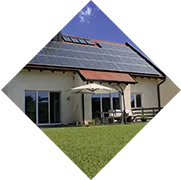380w solar panel
Understanding 380W Solar Panels Technology, Benefits, and Applications
In recent years, solar energy has emerged as a pivotal component of the global shift towards renewable energy sources. Among the various solar panel options available on the market today, the 380W solar panel stands out for its efficiency and practicality in harnessing solar power. This article delves into the technology behind 380W solar panels, their benefits, and their applications in both residential and commercial settings.
Technology Behind 380W Solar Panels
The term 380W refers to the maximum power output of a solar panel under ideal conditions, typically measured in watts. Modern 380W solar panels utilize high-efficiency photovoltaic (PV) cells, primarily based on monocrystalline silicon technology. This type of solar cell is known for its superior energy conversion rates, typically exceeding 20%, which means a significant portion of the sunlight they capture is converted into usable electricity.
These panels often feature advanced technologies such as PERC (Passive Emitter and Rear Cell) and half-cell designs. PERC technology enhances light absorption and energy conversion efficiency by adding a reflective layer at the back of the cell, allowing for more light to be captured. Meanwhile, half-cell designs cut cells in half, reducing resistance and improving overall performance. Together, these innovations contribute to the panel's ability to produce a high wattage output while minimizing energy loss.
Benefits of 380W Solar Panels
1. Higher Energy Output One of the most compelling benefits of 380W solar panels is their efficiency in energy generation. With a higher wattage output, fewer panels are needed to achieve a desired energy production level, making them an attractive option for space-constrained installations.
2. Space Efficiency For homeowners and businesses with limited roof space, 380W panels provide an effective solution to maximize energy production without requiring extensive installations. This characteristic is particularly beneficial in urban areas where available space can be significantly limited.
3. Cost-Effectiveness While the initial investment in 380W solar panels may be higher than lower wattage alternatives, their efficiency and durability often lead to cost savings over time. Higher energy output can result in lower electricity bills and faster payback periods.
380w solar panel

4. Durability and Longevity High-quality 380W solar panels typically come with robust warranties, often ranging from 25 to 30 years. Their durability means that they can withstand various weather conditions, ensuring reliable performance for decades.
5. Environmental Benefits By choosing solar energy, users contribute to the reduction of greenhouse gas emissions, thus mitigating climate change. 380W solar panels, with their higher efficiency, can produce more clean energy with fewer resources.
Applications of 380W Solar Panels
The versatility of 380W solar panels makes them suitable for a wide range of applications
- Residential Installations Homeowners looking to decrease their carbon footprint and reduce utility bills often opt for 380W panels. They are ideal for roof-mounted systems in residential settings, where maximizing energy output is crucial.
- Commercial Solar Projects Businesses can significantly benefit from the efficiency and power of 380W panels, particularly in large-scale installations. Warehouses, factories, and shopping centers can utilize the panels to offset energy costs and enhance sustainability efforts.
- Solar Farms For utility companies or investors interested in large solar farms, the use of 380W panels can maximize the energy produced per square meter of land. This efficiency is vital for the economic viability of solar energy projects.
Conclusion
As the world continues to prioritize renewable energy sources, the adoption of solar technology is escalating rapidly. The 380W solar panel represents a significant advancement in solar energy efficiency, combining powerful output with space-saving benefits. Whether for residential use, commercial endeavors, or large-scale solar farms, these panels are poised to play a crucial role in the ongoing transition to sustainable energy practices. By investing in 380W solar panels, users not only enhance their energy independence but also contribute to a greener planet.
-
String Solar Inverter: The High-Efficiency Solution for Smart Solar EnergyNewsJul.14,2025
-
Revolutionizing Rooftop Energy with the Power of the Micro Solar InverterNewsJul.14,2025
-
Power Independence with Smart Off Grid Solar Inverter SolutionsNewsJul.14,2025
-
On Grid Solar Inverter: Powering the Future with Smart Grid IntegrationNewsJul.14,2025
-
Monocrystalline Solar Panels: High-Efficiency Power for the Future of Clean EnergyNewsJul.14,2025
-
Bifacial Solar Panel: A Smarter Investment for Next-Generation Energy SystemsNewsJul.14,2025







